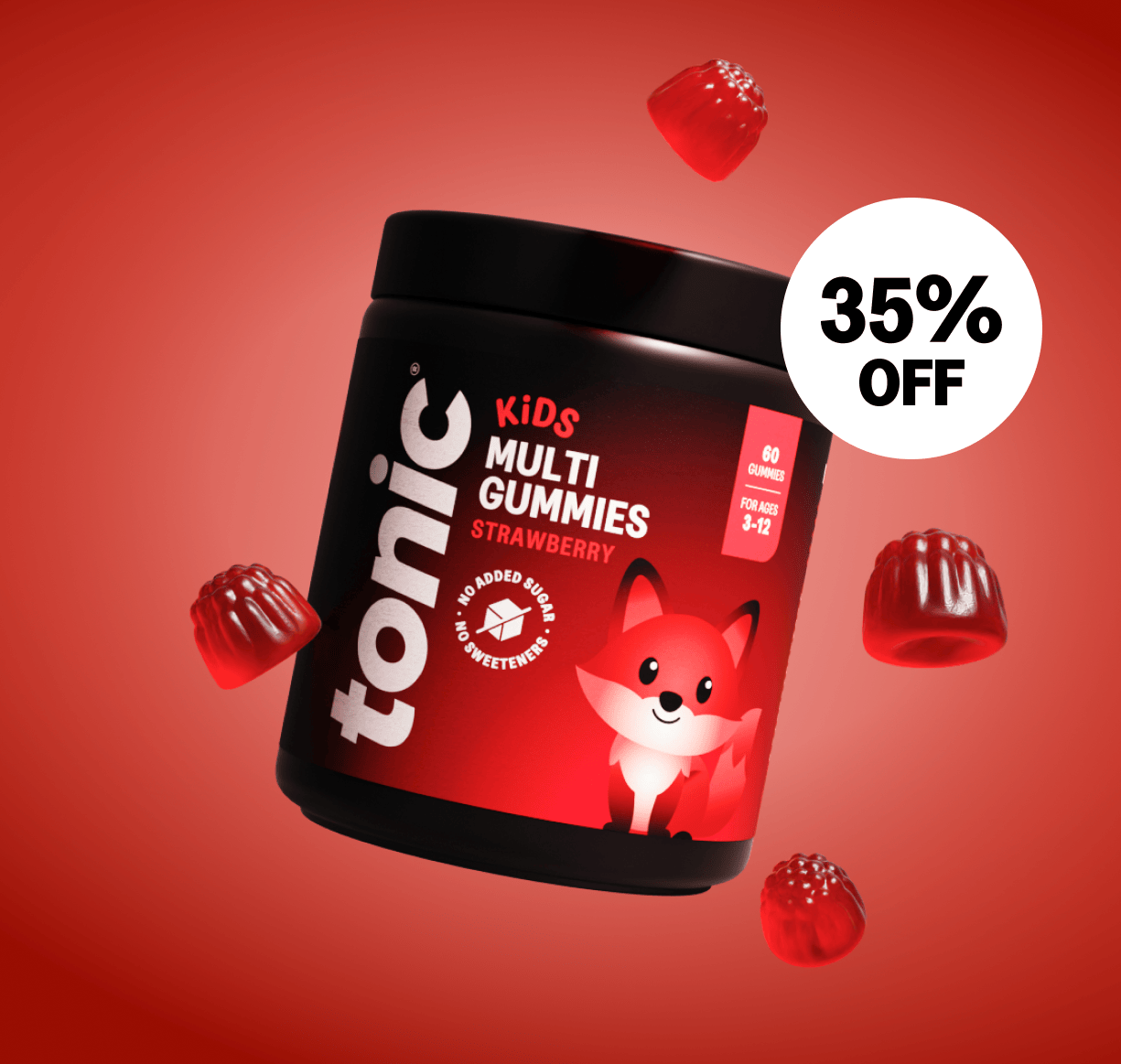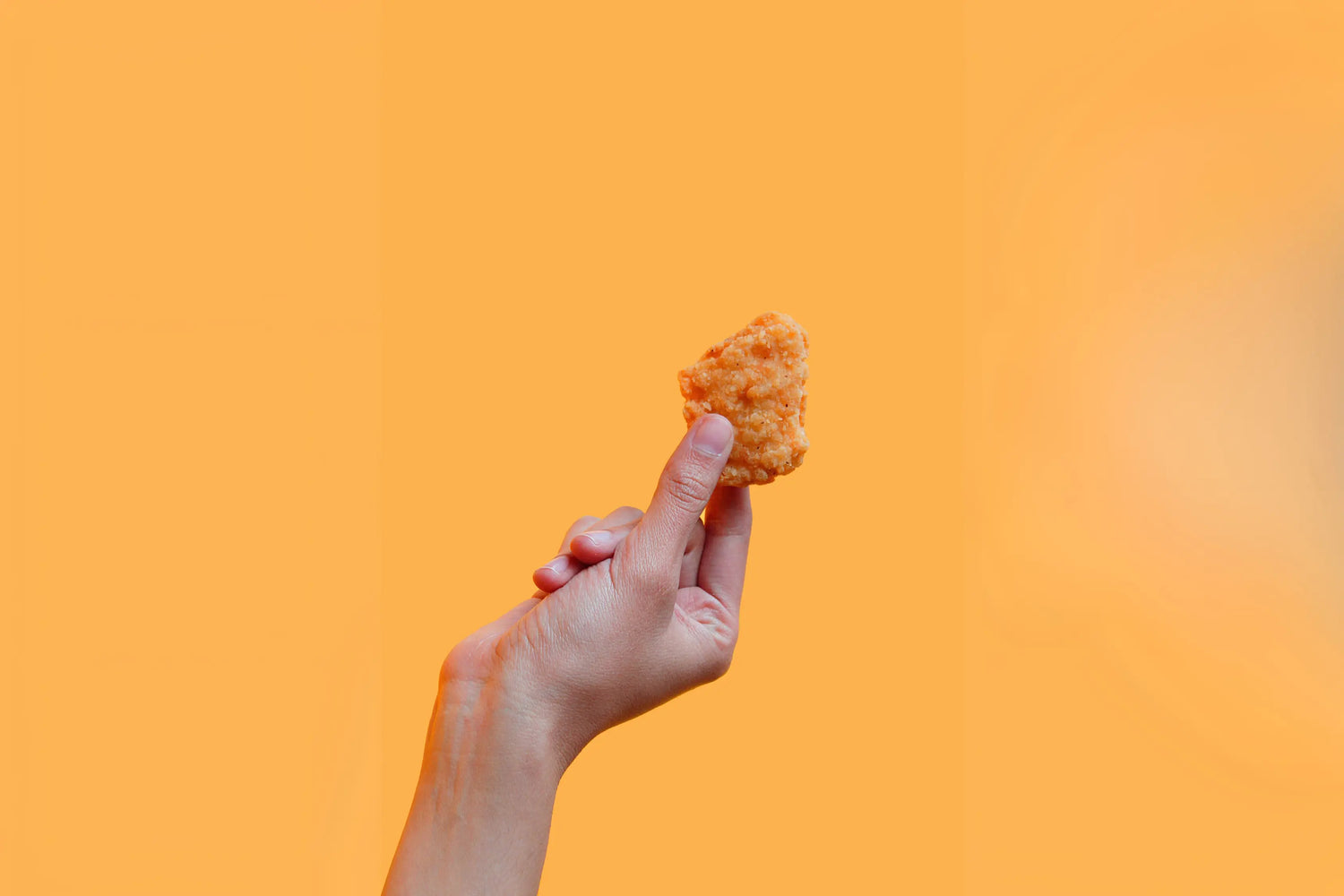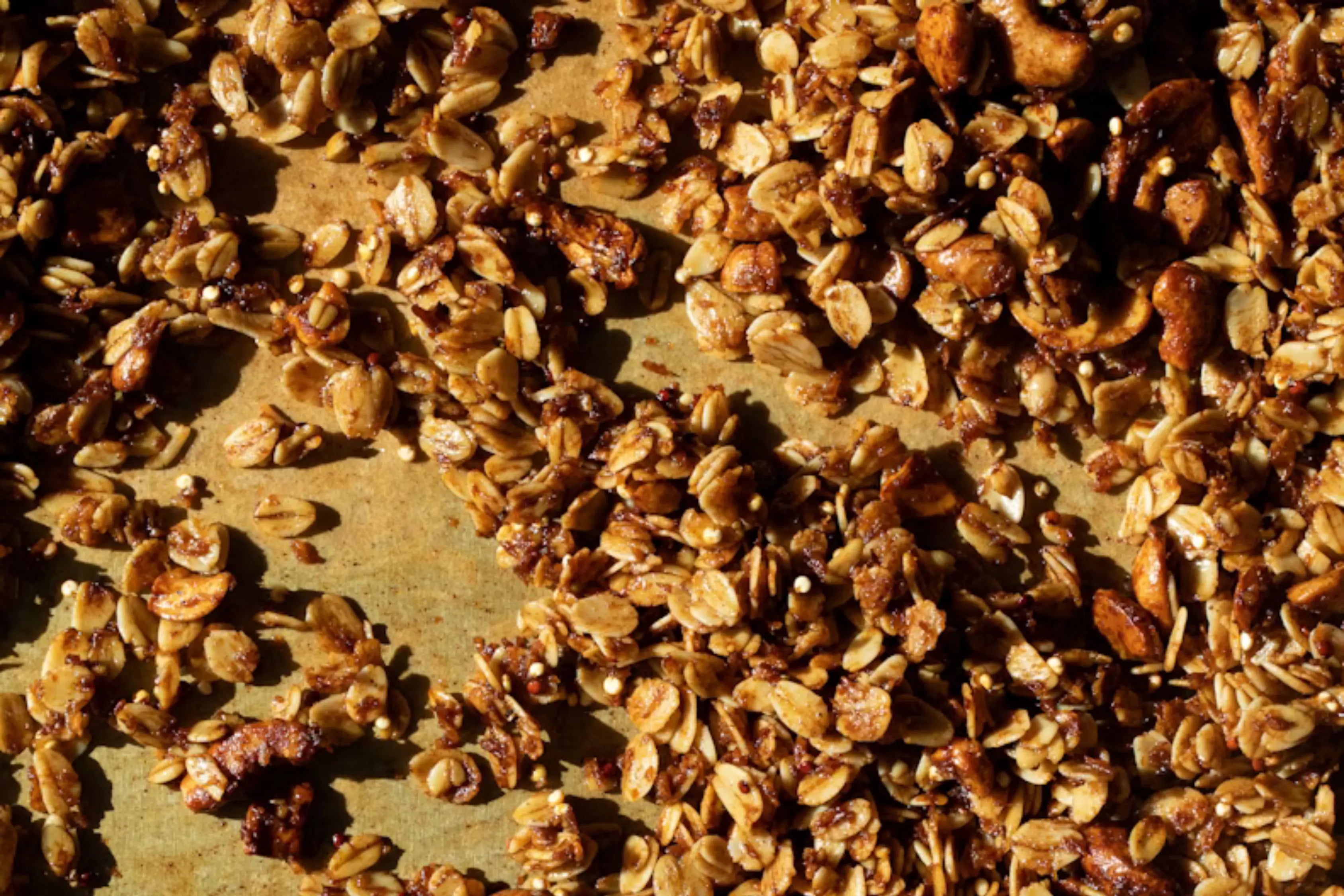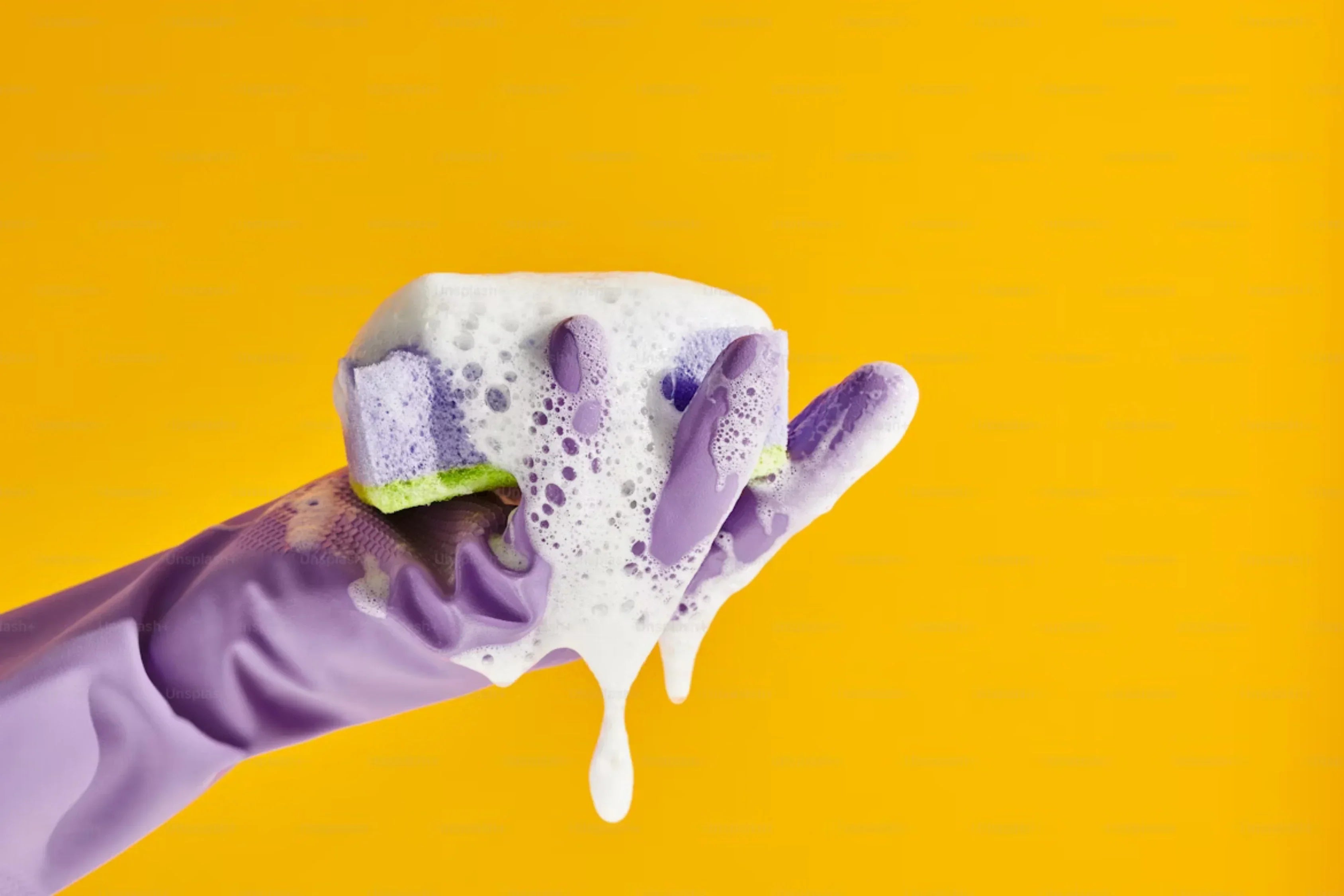The UK is a SNACKING nation. We love to snack! As a consumer, you're not alone in the struggle to navigate the world of snacks for healthy options, let alone healthy snacks your kids will actually eat. Unfortunately, many of the snacks marketed as “child-friendly” are packed with sugar, salt, and other unhealthy ingredients that guarantee cheap prices and a long shelf life.
Did you know that 65% of UK children’s diets are Ultra Processed Foods 🤯 which are defined as foods containing ‘substances never or rarely used in kitchens, or classes of additives whose function is to make the final product palatable or more appealing’. Most of these cleverly packaged foods don’t even look bad at first glance, but when you look at the nutritional labels and ingredients it’s another story.
- Veggie Straws from Eat Real or Kiddylicious are basically crisps, fried in inflammatory cheap rapeseed and sunflower seed oils.
- Fruit pouches and smoothies are sugar bombs …! Take a Piccolo Apple, Banana, Yoghurt and strawberry melt it has 55g of sugar per 100g serving …that’s the same amount of sugar as Quality Street sweets!!! An Innocent Strawberry, Raspberry and Apple Smoothie has 18g of sugar per 150ml pouch – that is 4.5 teaspoons of sugar … and basically zero fibre, so your child will not feel full, but only get a sugar hit.
- As for Oat Bars – they have sunflower oil, even those from Organix and Deliciously Ella – and definitely, don’t got for Nature Valley, it’s got has emulsifiers and inflammatory sunflower lectins.
- Sadly, dried fruit is not any better it. SunMaid Raisins have 71g of sugar per 100g. Urban Fruit dried Mango 57g. You could literally be giving them candy – but somehow, we think that fruit must be better.
- And guess what, even Calpul has inflammatory E numbers (E965, E420, E218, E216, and E214) although it says sugar and color free. It has Sorbitol and Maltitol, sugar alcohols used as a sugar substitute in low calorie candies, chewing gum, chocolates, ice creams etc.
Bottom-line, we know that the kid’s aisle does a great marketing job, that being a parent is tiring and that convenience packs are oh so convenient for your handbag, diaper bag, car or whatever, but we are teaching our children to like very sweet and processed foods. These highly palatable foods are starting a cycle where brains are stimulated by processed foods, making them crave them even more.
What is even worse, are the long-term consequences of feeding children a diet high in ultra-processed foods.
Health problems caused by processed foods
Did you know that a child’s microbiome is malleable and forms by the time he or she turns 5? This sets up our children’s health for a lifetime. Their gut microbiome is influenced by genetics, environment, diet and more. Biombe, a next generation gut microbiome test for children, says that “ the foods children eat have a direct relationship to the diversity of the bacteria in their gut, which signals the immune system. You can influence your child’s gut bacteria in part by changing diets. Learning how to feed and nurture your children’s microbiomes can have positive outcomes on their health.” Tiny Health, another child gut microbiome test, produced great content on Instagram if you want to know more.
Digestive issues, constipation, psoriasis or eczema, diabetes, obesity, mental and dental health problems are just a few of the issues associated with consuming processed foods – or rather nutrient poor foods. The problem is that these processed foods can contain up to 50% less nutrients compared to fresh, unprocessed foods, so you are only providing your child’s growing and developing brains and body with half the nutrients it needs to function properly.
The effects of ultra-processed foods in 30 days
So, what really happens? We could not find as study on children, but found this account of a UK doctor swapping his 80% unprocessed food diet for 80% ultra-processed food, the results from a single month are scary! Have a look at the video that got 4.3 Million views to see how his physique, weight and blood work changed in just 30 days.
Changes you can make at home
The Thrive Kids Clinic, an advanced child and teen nutrition Clinic in London, speaks about eating patterns being established in childhood and extending into adulthood. Childhood is a critical time when food preferences and eating habits are formed, with long-lasting effects on health. So, here are a few tips.
- Kids like to copy and our #1 suggestion is to model good nutrition. If you're snacking on junk food all day, it's hard to expect your kids to make healthy choices. If they see you eating an apple, or carrot sticks with hummus, they will probably also want to.
- Talk to your children about healthy and unhealthy foods. Children want to be healthy and grow, so talk to your children why sugar is bad, that fish makes you smarter, that vegetables make you grow etc. With some persistency, they might just help you help them, plus schools often also address this subject.
- Switch out 4-5 daily staples. Chances are your bread, cereal, yoghurt, sweet and salty snacks will fall into the ultra-processed camp. Don’t beat yourself up – it’s not easy. Start by taking a close look at the ingredients list and nutrition facts, and check for sugar, salt, seed oils, gums and other unhealthy additives.
- Rome was not built in a day, so start by creating a couple of new routines. For example, try serving up real veggies sticks, nuts, whole-grain crackers and Babybel cheeses in fun bowls with hummus or guacamole and making it Aperitivo time. Some kids even love olives and gherkins. Or freeze almost ripe halves bananas and make them a desert treat. Or decorate a plate with different fruits – you might be surprised to see your children’s delight at your creative efforts.
- Go to the supermarket with your children, and let them choose new, seasonal fruits and vegetables. It’s boring for anyone to always be told what to eat, and to eat the same foods all year around. Just remember the dirty dozen high pesticide list that you should buy organic. Strawberries, apples and grapes are the biggest culprits.
Kid’s Salty Snack Shopping Guide
Finally, Sunna had a look for healthiest salty snacks in the supermarket as on-the-go time can be challenging.

Here's a quick summary:
- What to look for
- What to avoid
- What brands and products are best
It's free to download. Click this icon to see it 👉📑
On mobile? Click here instead 👉📲
More on Instagram and TikTok
It will be children’s week on our socials.
We will feature videos on healthy bread for fussy eaters who don’t like crust, healthy breakfast options with Sunna's son, a review of the kids porridge aisle and more. We have received lots of questions over the last few months about kids’ nutrition. If you still have questions, send Sunna an email on sunnavankampen@tonichealth.co.






Leave a comment
All comments are moderated before being published.
This site is protected by hCaptcha and the hCaptcha Privacy Policy and Terms of Service apply.